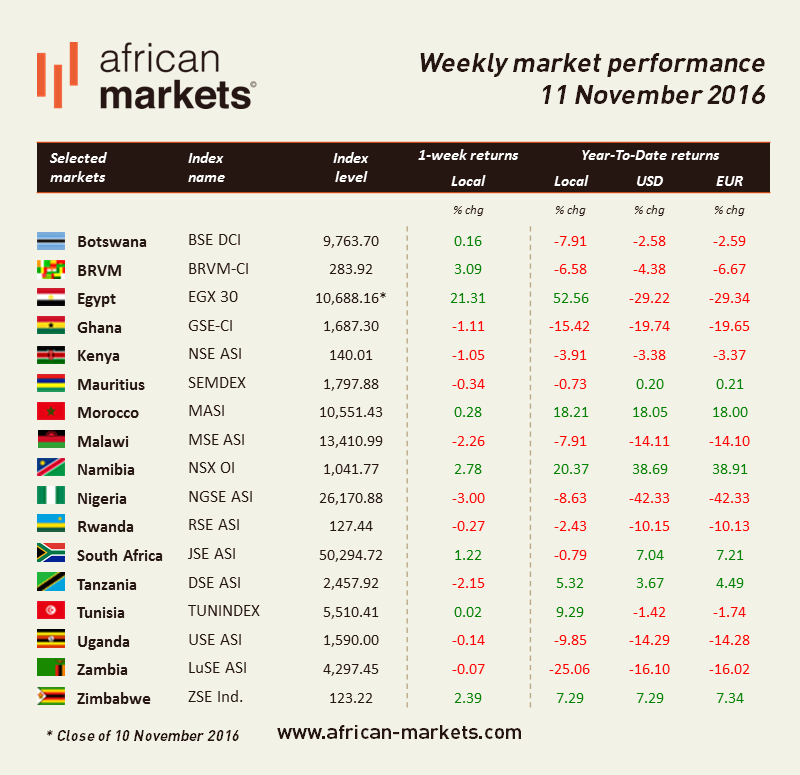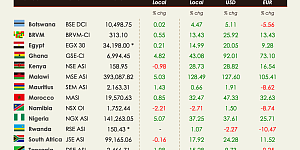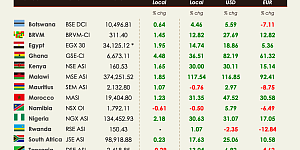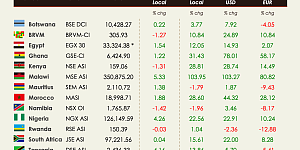The United States elected their new President this week, globally markets reacted pretty well or not as bad as they were expected. What about African markets? During his campaign, Trump has been highly vocal about his willingness to file trade cases against China. Should this materialise, further contraction of the Chinese economy would be negative for African economies that are dependent on export to China. However, given the size of the US debt that China holds (~$1.3T), and potential retaliation, it seems difficult to enforce and not necessarily a sensible step to take.
The strongest performance came from the Egyptian index. EGX30 gained 21.31%. The strong performance was driven by different elements. First, in order to boost foreign reserves and support a dollar shortage weighing on the economy, the central bank of Egypt secured additional financing with international banks. The repurchase transaction has a maturity of one year. The Finance Ministry issued $4bn in bonds on the Irish Stock Exchange to serve as collateral for the repurchase agreement. This means $2bn of additional funding will fly to the reserves. According to the ministry, the government issued a $1.36 bn bond with a December 2017 maturity at 4.62%, a $1.32 bn note with a 2024 maturity at 6.75% and a $1.3 bn bond with a 2028 maturity at 7%. Moreover, the index benefitted from positive sentiment following the Egyptian pound floatation and the approval of the $12 billion loan fund facility over three years by the IMF. The move was welcomed by the market as it is hoped it will help Egypt restore the economy to before Arab Spring levels.
JSE ASI gained 1.22%. The main index was boosted by a hike in gold miners as investors looked for safety. Gold mining stocks climbed 4.8%. Stocks rallied on higher commodity prices globally. In other news, South Africa’s Eskom CEO resigned after being accused of influence peddling by the Public Protector because of deals between the Company and the Gupta’s, a business family closed to President Zuma.
Standard Chartered Bank was fine 2 bn naira by the Central Bank of Nigeria for foreign exchange infraction. It seems like the CBN has bought forex at a rate above the interbank rate. NGSE ASI lost 3%.
During a parliament hearing, new Finance Minister Mutati declared Zambia would cut budget deficit to 7% of GDP in 2017. Domestic borrowing will be capped at 2% GDP in 2017, moreover as a result of lower copper prices, power shortages and inflation, the economy is forecasted to grow 3.4%. LuSE ASI was flat this week (-0.07%).










































